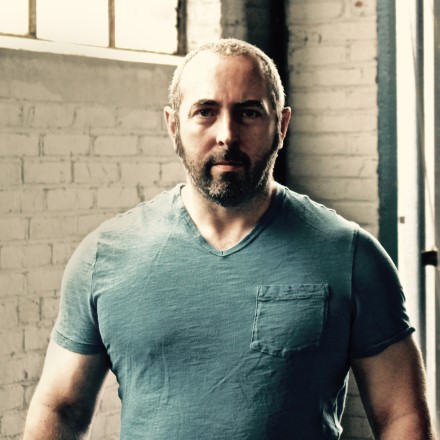Violence against groups, is in many ways very different, to that which targets individuals e.g. as a member of a group it is extremely difficult to predict, if, when and how you will be targeted. Those attending the prayer meeting at the Emmanuel African Methodist Episcopal Church in Charleston, last week, had no way of predicting that they would be the target of a hate crime – they may have recognized that being members of a significant and famous black church (which had been burnt down previously), in the south of the U.S. had risks attached to it, however no member of the prayer group that met last Wednesday would have been able to predict that a gunman would open fire on them, killing nine. When we consider violent acts and assaults that target individuals, such as muggings, street robberies and sexual assaults, there are usually pre-violence indicators, such as a person’s position/movement, the location they are in, or certain things that they will say and do, which will let us know that we are dealing with a dangerous individual.
However there are similarities between those who perpetrate acts of violence against groups, and those who target individuals; both feel justified to engage in violence, and can’t see any other alternatives to it. Someone who opens fire on a prayer group, believes that they are justified to do this, and believes that this is the only way that their agenda will be met. Dylan Storm Roof, who the FBI named as the killer, obviously felt that what he did was both right and necessary – reportedly his goal was to start a “Race War” and this was the method he chose to do it by. Apparently he considered an alternative target, a local school, but backed away from it due to its relatively high level of security. Storm probably considered other ways to solve the “Race” issue, as he saw it, but eventually came to the conclusion that he had no alternative but to attack the church. More importantly he felt justified to do this.
If you look at the profile of a sex offender, such as a Power Assertive Rapist, you will see a predator who believes he is both entitled and justified to force women to have sex with him, and that he has no alternative or other way in which he can satisfy his sexual desires. Like Dylan Storm Roof, he believes he is justified and entitled to commit his crimes, and that there are no other ways – alternatives- in which their end goals could be met. With every primary motive, their come secondary motives. A rapist may be looking for sexual gratification, but tied up with this are the emotional drivers of power, anger and control. Even a mugger, who at first glance is simply looking for financial gain, is in some part driven by anger, and a need to have and exert power and control. Most muggers, are at the bottom end of the criminal ladder, committing their crimes to support a drug habit – these are not individuals who are happy with their position in life, as they know how society views them, and they recognize that they have little control and influence over the direction of their lives. Muggings are one of the few occasions when they have the chance to displace some of their anger, and exert power and control over somebody. Yes, they want financial reward, however there are other illegal ways they could achieve this yet they have chosen street robberies, and they have done this for a reason.
Dylan Storm Roof, may have argued and believed that what he was doing was for the greater good, which gave him his justification for doing what he did, but at the end of the day, he was displacing anger, and exerting power and control (something he had little of in his daily life). He did not commit his crime without emotion, it was after all a hate-crime, which was motivated by anger – as he shot his victims he shouted racial slurs and epithets, demonstrating he wasn’t emotionless in what he did. Roof, was unemployed, High School dropout, didn’t have a driver’s license, and was living alternately in his estranged parent’s homes. This was not somebody who enjoyed any power and control over his life, or anybody else’s; being able to stand before a church group, with a gun, and tell them that they all, “had to go”, would have been one moment in his life, where this wouldn’t be the case. If we want to stand a chance at predicting how and why, people turn to violence, we must sometimes look beyond the initial crime and study the secondary motivators as well as the primary ones.
When we look at the secondary motivators, of anger, power and control, we can start to understand how radicalization works, whether it is racial or religious. Those individuals from the West who are joining ISIS, are equally motivated by a sense of anger at their situation, and the need to exert power and control in their lives. These motivators can be shared by the affluent as well as the poor; the sons of the rich become terrorists and suicide bombers as well as those of the poor (though notably not in as great numbers). You can be the member of an affluent family, and still have little or no, power and control in your life.
Understanding that even a low level criminal, such as a mugger, is motivated by anger, power and control, gives us clues as to how we must handle are interactions with them. Refusing an armed mugger your wallet etc. is challenging them for the power and control of that situation, as well as challenging somebody who has a good degree of anger that they need to displace. In such a situation, you will get cut or shot. You may believe that your desire to hold on to your wallet is greater than their determination to take it from you, however you are dealing with an angry person who feels justified to take it from you by force, and can’t see any alternative means of supporting their drug habit; they are also angry, and will want to make sure that this moment of power and control is not taken away from them.
Was Dylan Storm Roof’s exact crime predictable? No. But that he was intending to commit a race crime against a particular group was. He even talked about it with friends who simply didn’t take him seriously – something which is common with many of these types of mass shootings. Dylan Storm Roof was an angry man, who lacked power and control in his life, whilst not the primary motivators – a hatred of African Americans was – these secondary motivators, were strong drivers in getting himself to the emotional place where he was ready to commit his crime; one which he felt justified to engage in, and which he could see as the only way to achieve the “Race War” that he dreamed was the solution to America’s race “problem” (there were no other alternatives as he saw it). It would be wrong to equate a mugging incident with a hate-crime, such as a mass shooting, however the profiles of the predators who commit them share many similarities, and when predicting and dealing with both types of predators it is worth remembering this.
Share:

Gershon Ben Keren
2.8K FollowersGershon Ben Keren, is a criminologist, security consultant and Krav Maga Instructor (5th Degree Black Belt) who completed his instructor training in Israel. He has written three books on Krav Maga and was a 2010 inductee into the Museum of Israeli Martial Arts.
Click here to learn more.
